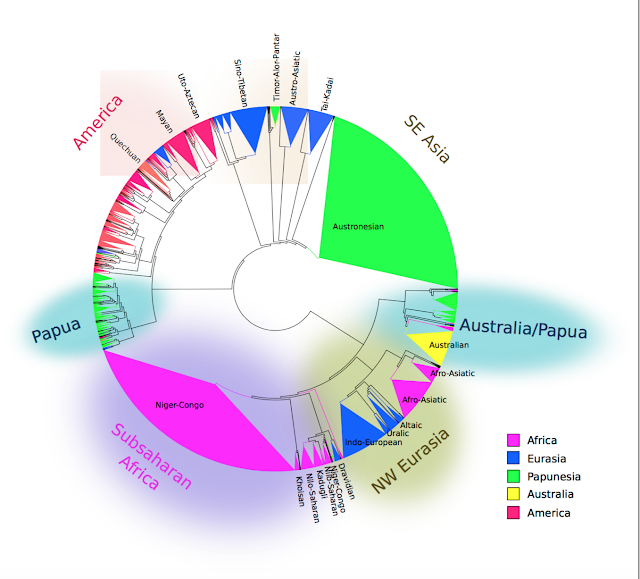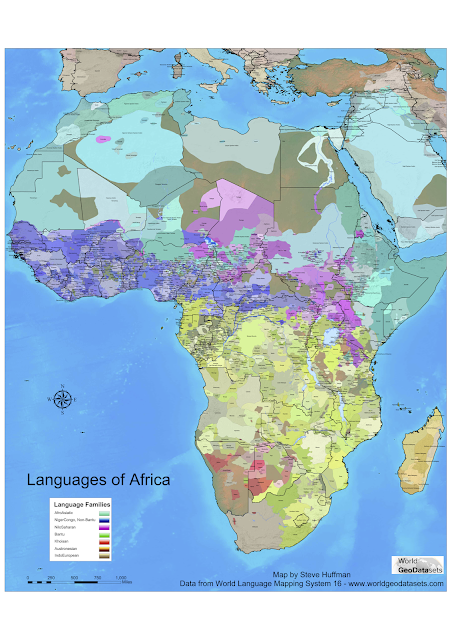Pāṇini Award 2015 - Best Grammar of 2014!
Hello all grammar lovers out there!
(Yes, this is a serious blog about linguistic research where we also use animated gifs to illustrate points/emotions and imagine that the Beatles are grammar lovers. It is possible to combine the two.)
Next year there will be a big conference for researchers who work on comparing languages, i.e. linguistic typologists. It's the Biennial Conference of the Association for Linguistic Typology (ALT). In connection with that there will be a prize awarded for the best dissertation grammar of 2014. Isn't that exciting :)?! Yes, yes it is exciting! I'm excited.
Why then is it called the "Pāṇini Award"? Well, Pāṇini was a linguist from Gandhāra who live a very long time ago, probably 4th century before Christ. He wrote a grammar of Sanskrit that was very good and is often regarded as the first whole grammar ever written. There existed a Sanskrit grammar tradition around before Pāṇini, see Yāska's work on Sanskrit probably at least 100 years before. You should read up on him and the other Sanskrit grammarians if you haven't already. "India" or "Pakistan" didn't really exist at that time, he lived in the kingdom of Gandhāra which is located in modern day Pakistan. Sanskrit is an ancient, sacred and probably dead Indo-European language. It's still spoken, written and read, but it probably has no native speakers (facts are a bit unclear and sensitive on this point).
Glottolog has an RSS feed for recent grammars, you can get the URL here and paste it into you blog reader.
Here's the official statement from the mailinglist for ALT.
The Panini Award 2015
At the 11th Biennial Conference in Albuquerque (August 1-3 2015), the Association for Linguistic Typology will award its third Panini prize, for a grammar passed as a dissertation between January 1st 2011 and December 31st 2014. The Panini award was established to encourage and honour achievements in the field of documenting the world’s linguistic diversity through the writing of reference grammars. (Yes, this is a serious blog about linguistic research where we also use animated gifs to illustrate points/emotions and imagine that the Beatles are grammar lovers. It is possible to combine the two.)
Next year there will be a big conference for researchers who work on comparing languages, i.e. linguistic typologists. It's the Biennial Conference of the Association for Linguistic Typology (ALT). In connection with that there will be a prize awarded for the best dissertation grammar of 2014. Isn't that exciting :)?! Yes, yes it is exciting! I'm excited.
Why then is it called the "Pāṇini Award"? Well, Pāṇini was a linguist from Gandhāra who live a very long time ago, probably 4th century before Christ. He wrote a grammar of Sanskrit that was very good and is often regarded as the first whole grammar ever written. There existed a Sanskrit grammar tradition around before Pāṇini, see Yāska's work on Sanskrit probably at least 100 years before. You should read up on him and the other Sanskrit grammarians if you haven't already. "India" or "Pakistan" didn't really exist at that time, he lived in the kingdom of Gandhāra which is located in modern day Pakistan. Sanskrit is an ancient, sacred and probably dead Indo-European language. It's still spoken, written and read, but it probably has no native speakers (facts are a bit unclear and sensitive on this point).
Glottolog has an RSS feed for recent grammars, you can get the URL here and paste it into you blog reader.
Here's the official statement from the mailinglist for ALT.
To be eligible, a grammar must provide a systematic, accessible, comprehensive, original, insightful and typologically well-informed account of the workings of the language being described, generously exemplified with natural data. Though the normal expectation is that it would deal with a hitherto little-described language, outstanding grammars of better-known languages or dialects thereof may also be considered if they achieve major breakthroughs in a comprehensive understanding of the language.
Grammars may be written in any major language, subject to the availability of a sufficient and geographically balanced set of jury members able to read the language. In order to be eligible for the prize, the author must be (or become) a member of ALT. Entries will be judged by a committee of distinguished linguists, including judges who have themselves written major reference grammars as well as typologists and other grammar-consumers.
p.s. this is good because I've been meaning to do a post about noun compounds in Sanskrit and Swedish and this reminded me.




Comments
Post a Comment